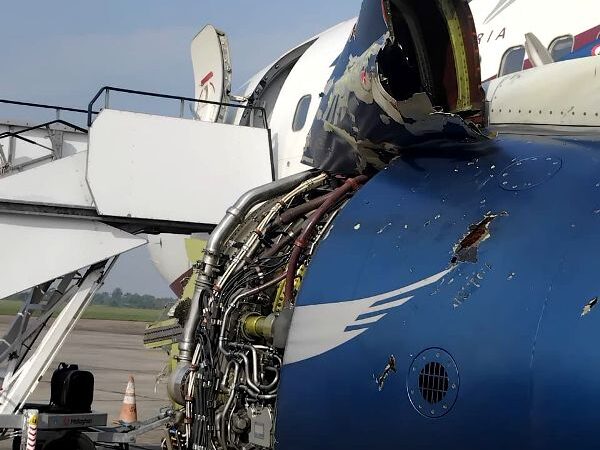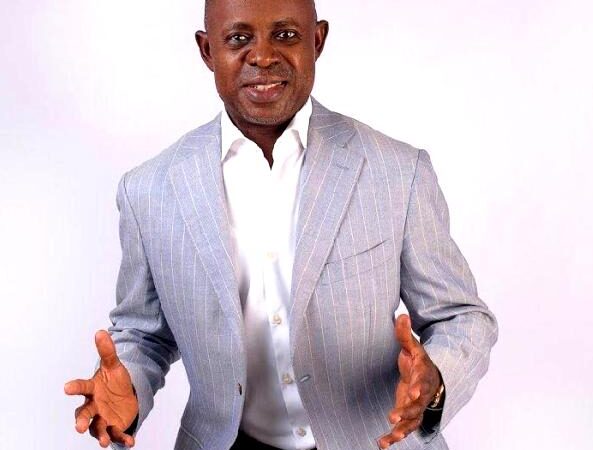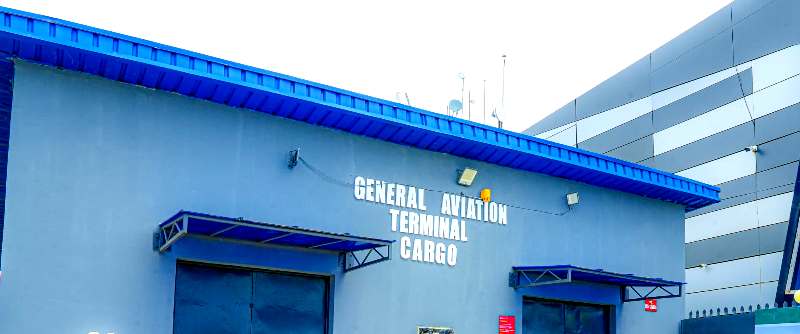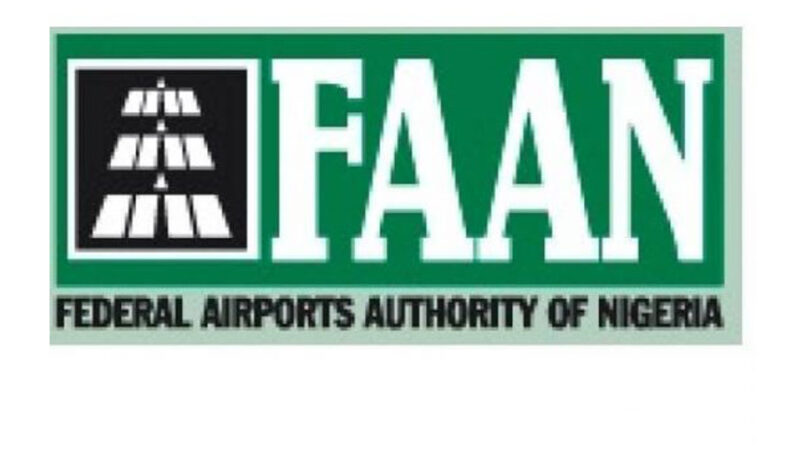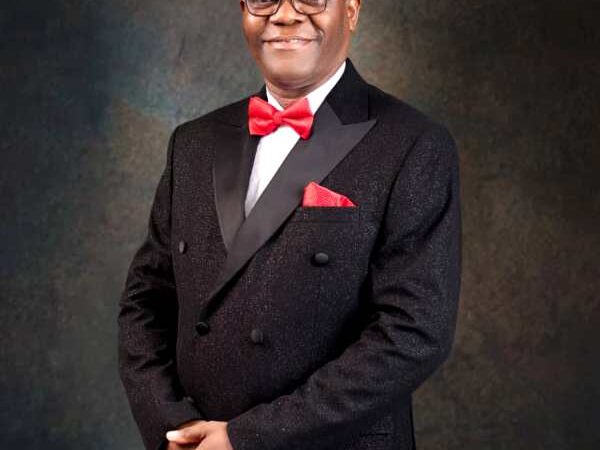Aviation Financing Possibilities In Nigeria

The options of financing for airlines, airports and other segments of Nigeria’s aviation sector was the focus of discussions at the 9th Annual Conference of League of Airport & Aviation Correspondents (LAAC), held at Providence Hotel, Lagos on August 7, 2025 under the theme, “Aviation Financing in Nigeria: The Risks, Opportunities and Prospects.”
In his presentation titled “Unlocking Investment Opportunities In Nigeria’s Aviation Sector: The Role Of Financial Institutions,” The Chief Executive Officer of Financial Derivatives Limited, Mr. Bismarck Rewane said: “Nigeria has 32 airports. Only 22 are considered viable and 96% of the traffic goes through just four airports. So, plenty of airports, short on service delivery; and a case where it’s important to have safety. Nigeria has 23 active domestic airlines. However, only five airlines control 75% of the traffic.”
He noted that the industry is fragmented adding that due to poor infrastructure, Nigeria’s aviation sector lost $3.5 billion in revenue between 2020 and 2022 and that billions of dollars have been lost over an extended period to inefficient deployment of resources.
Comparing Nigeria with other climes on finance management and investment, he said “Nigeria is about 923 square kilometers. California is 426, about half size of Nigeria but Nigeria has a GDP of $248 billion while California has, some say it is the fourth largest economy in the world and has $4.1 trillion.”
He said Nigeria has more airports than California and Nigeria’s economy is one hundredth of the world’s business. Nigeria’s income per head is $826 while the income per head in California is $85,000. All the passengers, per day in Nigeria, are 43,000 while passengers in California, in a day are 600,000.
Looking at passenger volumes and expenses, Nigeria has 6.5 million passengers a year and spends $1.75 billion while Los Angeles airport alone has 76.5 million passengers and spends $3.5 billion. So, they are using $3.5 billion to take care of 76.5 million people, whereas, Nigeria is using $1.75 billion to take care of 6.5 million people.
He urged aviation players in Nigeria to “stop doing dumb things. Start doing smart things; and then, start doing modern things.”
He advised government to “focus on policy and regulation and not running airlines or building airports directly,” advising government to concession airports. He also advocated consolidation which he said means that airlines merge to become more efficient and competitive like other sectors.” He also called PPPs prioritization and policy consistency to rebuild trust with global investors and attract global aviation capital.
President of Sabre West Africa, Dr. Gbenga Olowo, represented by his Chief Financial Officer, Mary Olowo-Sokeye, encouraged new airlines to start with the aircraft leasing option. “I think a lot of times, people want to own those aircraft and that could be problematic. It works for some people if you have a lot of cash, but because when you are in the loans, you have very, very high payment terms because you’re owning it for the lifetime. It’s kind of like a car. You buy a car today. If it’s $50 million, you’ve got to pay that $50 million over five years. Leasing is slightly different. You never want to own it. You just use it to get you to make money. So when you lease it, you have maybe two, three years to use it. You pay a fee, like a leasing fee, which is usually lower than the cost of ownership and the servicing and all of that stays with the owner. So, you only have to pay a fee to use it to gain what you need. When you’re talking about very expensive things like an aircraft, ownership is great if you, like I said, have a lot of cash. If you don’t, then the lease back option. For new airlines or new people trying to get into the airline space, definitely consider the leasing option,” she advised.
The Chief Executive Officer of CITA Aviation Fuelling, Dr. Thomas Ogungbagbe tasked the government on doing more to stand in the gap for airlines regarding interest rates and exchange rates. He said it costs $1.2 million to fuel a widebody aircraft because Nigeria’s operators buy aviation fuel in dollars despite the fact that there is refining of fuel in Nigeria. He said the inclement financing in Nigeria for airlines is the highest in the world adding that between 2000 and 2020, the average rate of airlines attrition has been five years.
The Chief Operating Officer of Bi-courtney Aviation Services Limited (BASL), operators of Murtala Muhammed Airport2 (MMA2), Mr. Remi Jibodu said “government must find a way to see that the airlines in Nigeria are very competitive because it’s not about the person that owns the airline or the company that owns that airline. It’s about Nigeria. It’s about the citizens of Nigeria to be able to move around easily and otherwise.” He also noted that incidents of unruly passenger behaviour can dent the country’s image and affect investment.
The Chief Executive Officer of Federal Airports Authority of Nigeria (FAAN), Mrs. Olubunmi Kuku represented by General Manager, Finance, Mr. Ayodele Olatiregun suggested efforts in the direction of the Sustainable Aviation Fuel (SAF) concept and adoption of PPPs to fix dilapidated infrastructure. He said the opportunities in the cargo market should also be explored adding that having a comprehensive Maintenance Repair and Overhaul facility will help airlines in cost reduction
He said the aviation sector is a long-term sector and requires long-term investment and in terms of infrastructure, it has to be long-term of 30 to 50 years finance rate.
“We should speak to the fact that government has already provided the conducive environment because if the right infrastructure is at the airports, it is easier for every other player to operate,” he said.
Managing Director of Belujane Konzult Limited, Mr. Chris Aligbe opined that “there should be a forex window that the airlines can access because they need to pay for lease. They need to pay for maintenance, spares, and everything. They need that forex window. It should be an intentional thing. It must be deliberate.”
He disagreed with the idea of having an aviation bank saying the airlines are too weak to build such. “They should introspect, like they say. They should put the search light on themselves to see where they are, and what they are doing wrong. If you go alone, you will die alone. That is the airline industry. So, it is economies of scale but our airlines have not talked about it and they are not thinking about it, except if they start tomorrow to think about it. If they continue the way they are, the future is bleak and if the airlines have a bleak future, the airports will have a bleak future,” he said.
Chairman of Air Peace Limited, Chief Allen Onyema noted that amount used for insurance of one aircraft by a Nigerian airline can insure six aircraft in Kuwait and some other climes because of stigmatization of Nigeria as a high risk jurisdiction. He also called for a review of charges paid by the airlines. He said “we pay a lot of charges and I keep on saying it, and I will say it as AON. The 5% we pay for ticket fares to NCAA is affecting the airlines because you don’t make 5% gain, and they will tell you that money does not belong to you. It is the money you’re collecting from passengers, on behalf of us. No. It is already limiting your ability to charge for the tickets. That is the truth. You can collect it directly from the passenger, so that whatever we collect from passengers will belong to us. So, I am not saying that we should not pay anything to the government, but it has to be cost recovery. Even the ICAO principle is about cost recovery. What we are doing here today, is a matter of legislation. The 5% has been legislated; and even now, in current tax reforms, I don’t know who put it there that we have to go back to the regime of paying custom duties for imported aircraft, custom duties for imported spare parts, VAT of 7.5% for imported aircraft, and even ticket fares. The airline would die within 48 hours. But I am happy that the Minister of Aviation, Mr. Festus Keyamo, has taken it up because if it is ever implemented from January next year, airlines would die.”
President of Aviation Safety Round Table Initiative (ASRTI), Air Cdr. Ademola Onitiju (Rtd) said “aviation is a collaborative affair and every segment is important. That is why ASRTI holds those in government accountable as regarding global best practices. He commended the Minister of Aviation & Aerospace Development, Mr. Festus Keyamo (SAN) for his efforts so far on airline financing and commended Air Peace Chairman for the performance of the airline.
The Group Managing Director of Finchglow Travels, Mr. Bernard Bankole stressed the need for accurate data and harmonization of existing one to enable the industry plan and make progress
President of Association of Foreign Airlines Representatives in Nigeria (AFARN), Mr. Kingsley Nwokoma emphasized the importance of collaboration among various stakeholders in the industry to attract more financing investment.
LAAC President, Mr. Idris Suleiman had in his welcome address, said this year’s conference theme is both timely and relevant. “In an era where global economies are being redefined by uncertainty, and infrastructure needs are rising, operating costs are escalating, and global aviation is undergoing major shifts, the question of how to sustainably finance the future of our industry could not be more relevant,” he said.
SEE MORE PHOTOS


